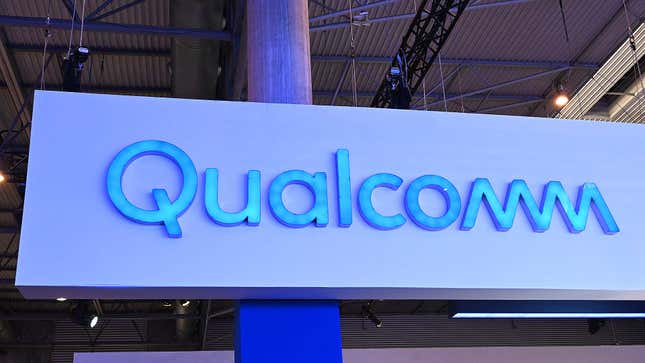
While the two-year legal battle between Apple and Qualcomm is far from over, we’re starting to inch toward some kind of resolution.
On Thursday, Southern District of California Judge Gonzalo Curiel handed down a preliminary ruling in favor of Apple, declaring that Qualcomm is on the hook for $1 billion.
The two tech giants’ legal battle dates back to 2017 when Apple sued Qualcomm claiming that the chip and modem maker had broken a cooperation agreement when Qualcomm refused to pay Apple patent royalty rebates. In his ruling on Thursday, Judge Curiel agreed with Apple’s claim, resulting in the $1 billion preliminary judgement.
However, it is somewhat doubtful Qualcomm will have to fork over all that cash, because as part of a countersuit against Apple, Qualcomm claims that it’s owed patent royalties for iPhones sold featuring Qualcomm technology.
Here’s where this gets complicate: Because Foxconn, not Apple, is responsible for actually assembling iPhones, the way the Qualcomm’s patent licensing works is that Qualcomm charges Foxconn for royalties, which are later reimbursed by Apple. Then, because of a separate agreement, Qualcomm would refund Apple a percentage of those licensing fees as patent royalty rebates, but only as long as Apple consented not to attack Qualcomm in court.
But then it gets even messier. As part of Apple’s legal spat, Apple instructed its manufacturing contractors (e.g. Foxconn) to withhold patent royalty payments from Qualcomm, a figure that Qualcomm claims has already amounted to somewhere around $1 billion. That means despite Apple’s recent judgment in the preliminary hearing if Apple is forced to pay the original royalties for using Qualcomm chips, that would essentially result in both companies breaking even.
Got it, yes? No? Well, that’s okay—you have plenty of time to figure it all out: None of these rulings are final until the trial starts for real next month.
[CNBC]